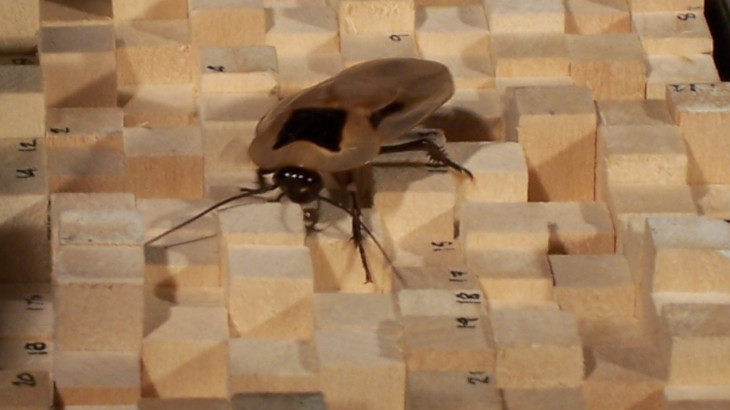We tested whether mechanical stabilization strategies without external sensing can yield successful locomotion in a challenging environment. In this study, we ran cockroaches (Blaberus discoidalis) over a highly complex terrain with obstacles up to three times cockroach hip height to repeatedly perturb body dynamics. Cockroaches provide excellent systems for neuromechanical experiments because they are experimentally robust and their motor commands are tractable. We could not detect changes in muscle activation of key control muscles or precise limb coordination, consistent with cockroaches relying on mechanical stability during this rapid, perturbed locomotion. When we challenged the cockroach with even larger obstacles, it altered neural activation patterns, indicating a switch to a neural feedback strategy. Thus, during highly dynamic behaviors, cockroaches can rely more on mechanical feedback to reject moderate perturbations, but use neural feedback to recover from large perturbations.
